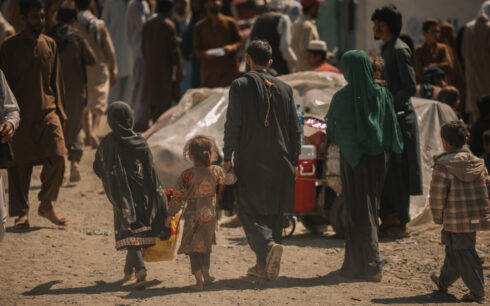ISLAMABAD, Pakistan — Pakistani authorities on Tuesday began deporting Afghan migrants living in the country without legal documentation, moving ahead with a controversial plan despite appeals for leniency from international rights groups and the Taliban.
The deportations began on the second day of Eid al-Fitr, a major Islamic holiday, following the expiration of a March 31 deadline for the voluntary return of undocumented Afghan nationals. Geo News, citing sources in the Khyber Pakhtunkhwa Home Department, reported that removals were now underway across the province, which hosts a large number of Afghan refugees.
The decision comes days after Pakistan’s federal government rejected requests from the Taliban administration to delay the expulsions and confirmed there would be no extension to the deadline.
Authorities have also requested updated records of Afghan students in Khyber Pakhtunkhwa to update the Foreign National Security Cell’s dashboard tracking foreign nationals.
According to Radio Pakistan, more than 878,000 Afghans have returned to their country since the repatriation drive began in late 2023. Pakistan hosts approximately 2.1 million documented Afghan nationals, including around 1.3 million registered refugees holding Proof of Registration (PoR) cards. Over half of them reside in Khyber Pakhtunkhwa, according to the United Nations High Commissioner for Refugees.
The government’s efforts to remove undocumented Afghans—many of whom fled conflict and Taliban rule—have been criticized by rights groups. Amnesty International has called the policy “opaque” and accused Pakistani authorities of violating their international obligations. In a recent statement, the organization labeled police actions under the plan “cruel.”
The deportation campaign, officially known as the Illegal Foreigners Repatriation Plan, began last year amid a surge in militant attacks that Pakistani officials linked to Afghan nationals. Despite concerns over safety and humanitarian conditions in Afghanistan, Islamabad has vowed to continue the policy.




